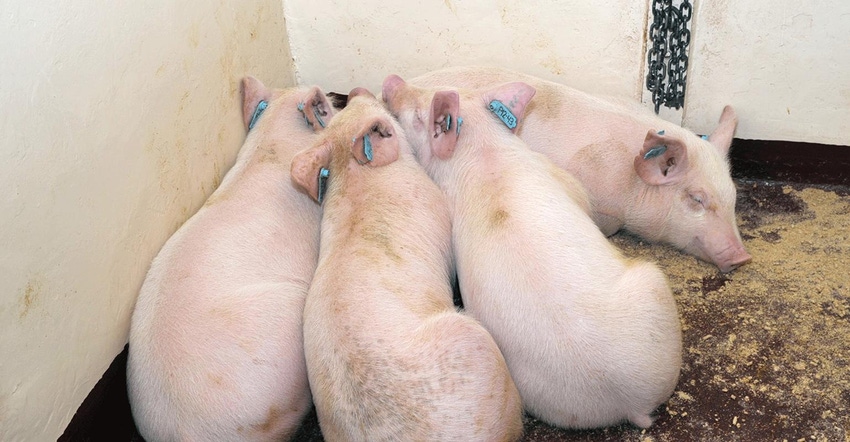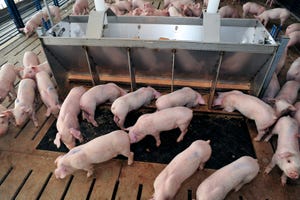International team to investigate ASF virus stability in feed, bedding
Researchers say transmission of ASF cannot be completely ruled out in case of feed that is not subjected to any further treatment and is fed directly.
November 7, 2022

African swine fever has spread to Europe and other parts of the world in recent years and has become a panzootia (a global animal disease). Since the pathogen is sometimes very stable in the environment, there is a suspicion that the virus could also be transmitted to domestic pig herds via feed, water and other inanimate materials such as bedding. Based on theoretical assumptions, the European Food Safety Authority came to the conclusion that certain feedstuffs and crops have a low risk of containing ASF viruses. However, there are great uncertainties due to a lack of scientific data. Some gaps in knowledge are now to be closed in an international research project.
The Friedrich Loeffler Institute, the Federal Institute for Risk Assessment and the Swedish Statens Veterinärmedicinska Anstalt are involved in the research project funded by EFSA . Virologists from the FLI and animal feed experts from the BfR will work together with the Swedish partners to investigate the stability of ASF viruses on various animal feeds and bedding materials under practical storage conditions.
Before the start of the investigation, BfR and FLI jointly evaluated previously known scientific findings on feed as a source of infection in a literature study. The influence of processing, transport and storage on possible contamination of feed with the ASF virus was also taken into account.
The experts came to the conclusion that ASF viruses that may have been introduced into processed by-products, grain, extraction meal and compound feed are largely inactivated as a result of the processing steps. However, improper handling of the products after manufacture could result in renewed contamination with ASF viruses. However, if the generally applicable hygiene regulations and preventive measures for handling and producing feed (HACCP concepts) are observed, this transmission route is rather unlikely. A transmission of ASF cannot be completely ruled out in the case of feed that is not subjected to any further treatment and is fed directly.
The investigations, as they are now planned in the research project of the three institutions FLI , SVA and BfR will provide urgently needed data on ASF viruses during processing and storage in feed raw materials for domestic pigs.
Source: Federal Institute for Risk Assessment and the Friedrich Loeffler Institute, which is solely responsible for the information provided, and wholly owns the information. Informa Business Media and all its subsidiaries are not responsible for any of the content contained in this information asset.
You May Also Like



